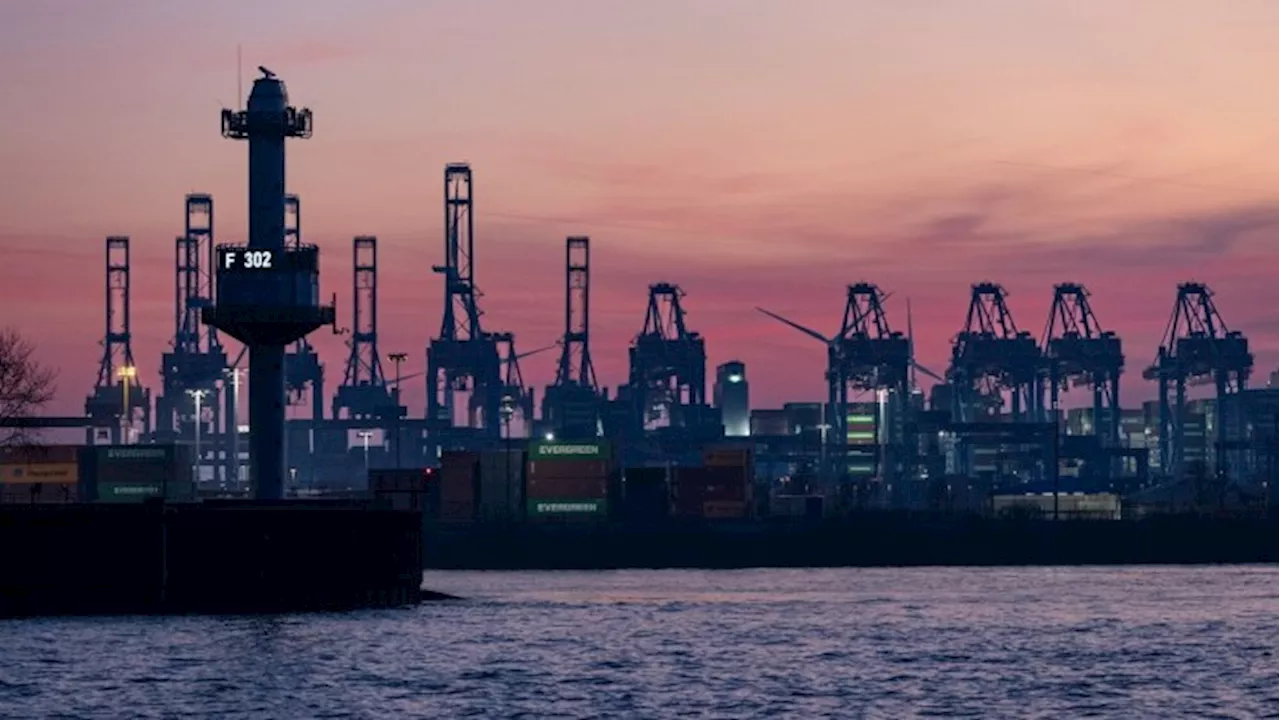European companies are facing the potential consequences of a trade war with the US. Uncertainty surrounding Donald Trump's trade policies is already affecting investment plans, particularly in the energy and automotive sectors. While some companies are prepared to adapt, others warn of significant financial repercussions if tariffs are imposed.
European companies are bracing for a financial blow from a potential trade war with the US, with some top executives warning that uncertainty surrounding Donald Trump's trade policy is already affecting investment plans. The US president delayed steep tariffs against Canada and Mexico earlier this week, but still has the EU in his crosshairs, leaving executives guessing as to the scale and impact of any new levies.
Markus Krebber, chief executive of Germany's RWE, one of Europe's largest power producers, said the threat of tariffs was slowing his group's investments into wind and solar projects in the US. Potential import duties created huge uncertainty over “what you can get into the US”, Krebber told a conference this week. Intermediate goods such as rotor blades and batteries “need to be imported because there is not yet local manufacturing” of them in the US, he added. Some companies, including luxury goods group LVMH and oil major Shell, were considering increasing their US presence. But Krebber said: “Our big customers are all telling the administration that it needs to ensure certainty pretty soon, because otherwise, actually, they achieve the opposite of what they want.” Analysts at Goldman Sachs said in a note that it was “not necessarily the tariffs themselves that matter, rather the trade uncertainty that hits economic growth and investment intentions”. The bank is already expecting some impact from trade barriers, with its equity team projecting European earnings-per-share growth at just 3 per cent in 2025 — well below analysts’ consensus forecasts. The EU is preparing to offer concessions to avert a trade war with Trump, who has complained that Europeans “don’t buy our cars, they don’t take our farm products, they take almost nothing and we take everything from them”. The bloc accounts for approximately 15 per cent of US imports, with machinery, pharmaceuticals and chemicals among its top exports to America. Europe’s automotive sector is also exposed to tariffs, especially if the EU retaliates with levies on US goods. “The big question is what happens if those tariffs come in between the US and Europe,” said Jim Rowan, chief executive of Volvo Cars. Although it would be “manageable” if the US raised tariffs on EU goods from 2.5 per cent to 10 per cent, a bigger margin would force the company to increase production at its plant in South Carolina, Rowan said this week. The Swedish group this week warned of lower profitability this year, in part due to tariff uncertainty. French drinks group Pernod Ricard also said it could be hit. London-listed drinks conglomerate Diageo forecast a $200mn knock to operating profits by June if Trump carried out his threatened 25 per cent levy on Mexican and Canadian imports. Jan Rindbo, chief executive of Danish commodities shipping group Norden, warned that if the EU retaliated against US tariffs with levies of its own, then companies would be “hit twice”. A trade war could lead to EU companies importing some goods from further afield, such as from South America, he added. Although demand for a wider range of shipments would be positive for the shipping sector, overall it could mean that the “US economy will get hit, that the EU economy will get hit”, he said. Despite the concerns, a number of executives said they had the flexibility to adapt to trade disruption. Energy companies would be able to reroute liquefied natural gas to avoid tariffs imposed on the fuel between the US and China, said Patrick Pouyanné, chief executive of France’s TotalEnergies. “The Chinese are buying energy from companies like Total. In fact, they just asked us, to avoid paying the , to give them some Australian or Qatari LNG, and we will take the US LNG and send it elsewhere, maybe to Europe,” he told the Financial Times. ArcelorMittal, world’s second biggest steelmaker, played down its exposure to potential US tariffs on Mexico and Canada. The group’s Canadian operation is a critical supplier to the US automotive sector, while its American facilities use semi-finished steel products from Mexico. Genuino Christino, ArcelorMittal’s chief financial officer, said he was “not overly concerned” about the prospect of tariffs. The company, he said, took a hit of about $100mn per quarter in 2018 when Trump last imposed 25 per cent tariffs on steel. The higher costs, however, were offset by higher prices. Micael Johansson, chief executive of Sweden’s defence champion Saab, told the FT: “It’s a bit premature to understand where it is going. Trade wars are never good for anyone.”
TRADE WAR EU US TARIFFS INVESTMENTS ECONOMIC GROWTH AUTOMOTIVE ENERGY
United Kingdom Latest News, United Kingdom Headlines
Similar News:You can also read news stories similar to this one that we have collected from other news sources.
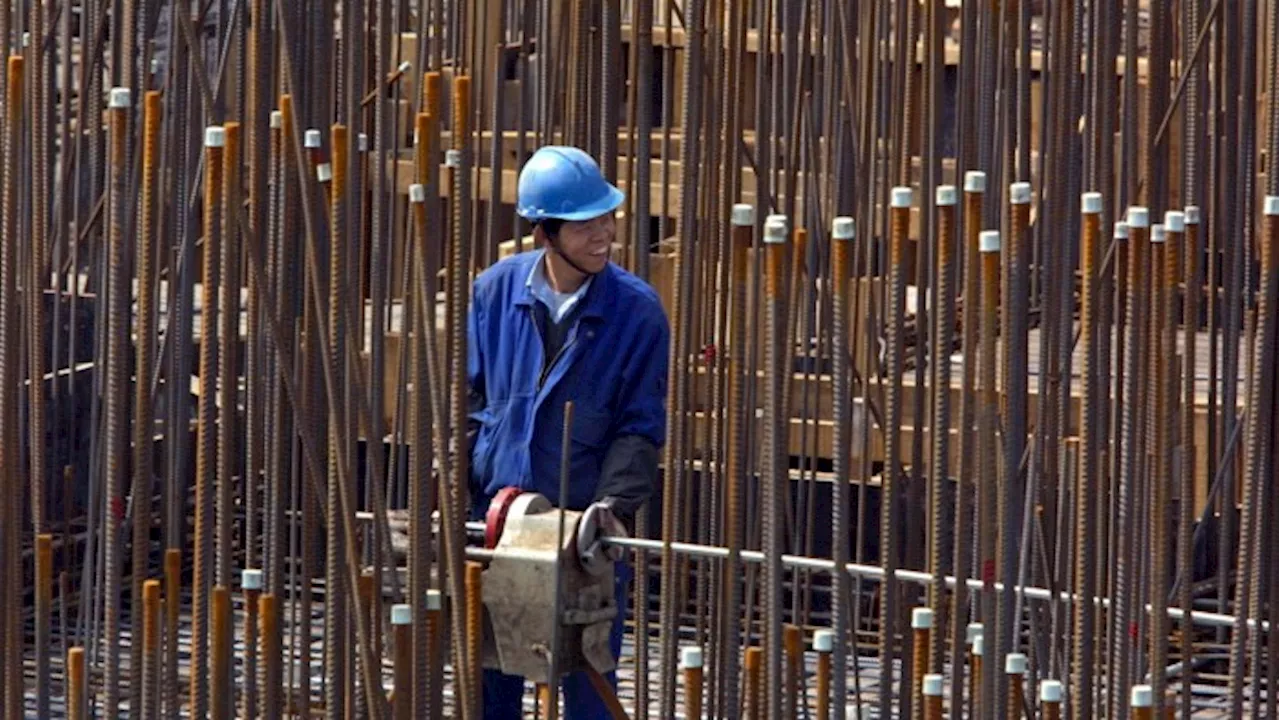 Emerging Markets Brace for New Trade War: 5 Reasons Why Wall Street is Watching CloselyThis article analyzes the potential impact of new China-centric tariffs on emerging markets, arguing that the ripple effects will be felt more strongly in these economies than in China itself. The author outlines five key reasons for this, including the rise of Chinese exports, the sensitivity of emerging markets to tariffs, and the shifting composition of the US trade deficit.
Emerging Markets Brace for New Trade War: 5 Reasons Why Wall Street is Watching CloselyThis article analyzes the potential impact of new China-centric tariffs on emerging markets, arguing that the ripple effects will be felt more strongly in these economies than in China itself. The author outlines five key reasons for this, including the rise of Chinese exports, the sensitivity of emerging markets to tariffs, and the shifting composition of the US trade deficit.
Read more »
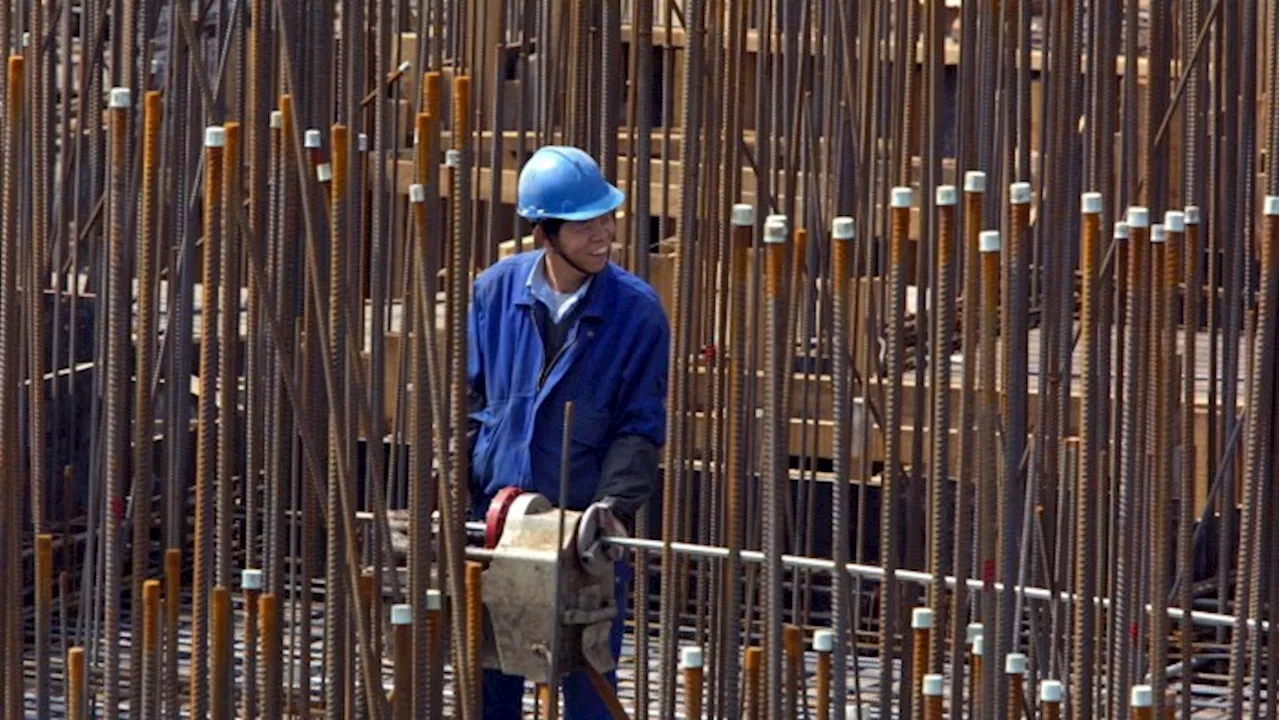 Emerging Markets Brace for Trade War 2.0The article discusses the potential impact of new China-centric tariffs on emerging markets. Despite American exceptionalism in equities, the weak trade balance motivates new tariffs. The author outlines five reasons why emerging markets, particularly outside China, are vulnerable: China's export surge into these markets, accelerating slowdown in Chinese imports, weak position to navigate a trade war, high exposure to tariff-sensitive industries, and challenging trade negotiations with the US.
Emerging Markets Brace for Trade War 2.0The article discusses the potential impact of new China-centric tariffs on emerging markets. Despite American exceptionalism in equities, the weak trade balance motivates new tariffs. The author outlines five reasons why emerging markets, particularly outside China, are vulnerable: China's export surge into these markets, accelerating slowdown in Chinese imports, weak position to navigate a trade war, high exposure to tariff-sensitive industries, and challenging trade negotiations with the US.
Read more »
 Oil Markets Brace for Trade War Fallout as Tensions Rise Between US and ChinaWhile recent US tariff threats on Canada and Mexico have sparked market volatility, the looming trade war between the US and China is the main concern for oil markets. Analysts fear that this escalating conflict could significantly dampen oil demand growth, already under pressure from shrinking margins.
Oil Markets Brace for Trade War Fallout as Tensions Rise Between US and ChinaWhile recent US tariff threats on Canada and Mexico have sparked market volatility, the looming trade war between the US and China is the main concern for oil markets. Analysts fear that this escalating conflict could significantly dampen oil demand growth, already under pressure from shrinking margins.
Read more »
 Oil Markets Brace for Impact as Trump's Trade and Energy Policies Create UncertaintyOil prices have been volatile in recent weeks amid President Trump's aggressive trade and energy policies. The White House aims to squeeze Iranian oil exports to zero and impose tariffs on imports from Canada and Mexico, raising concerns about supply disruptions. Major Wall Street banks are adjusting their oil forecasts, but the impact of these policies remains uncertain. The article examines the potential consequences of Trump's actions on the oil market, including the impact of sanctions on Iran, tariffs on Canadian and Mexican oil, and the Federal Reserve's interest rate policy.
Oil Markets Brace for Impact as Trump's Trade and Energy Policies Create UncertaintyOil prices have been volatile in recent weeks amid President Trump's aggressive trade and energy policies. The White House aims to squeeze Iranian oil exports to zero and impose tariffs on imports from Canada and Mexico, raising concerns about supply disruptions. Major Wall Street banks are adjusting their oil forecasts, but the impact of these policies remains uncertain. The article examines the potential consequences of Trump's actions on the oil market, including the impact of sanctions on Iran, tariffs on Canadian and Mexican oil, and the Federal Reserve's interest rate policy.
Read more »
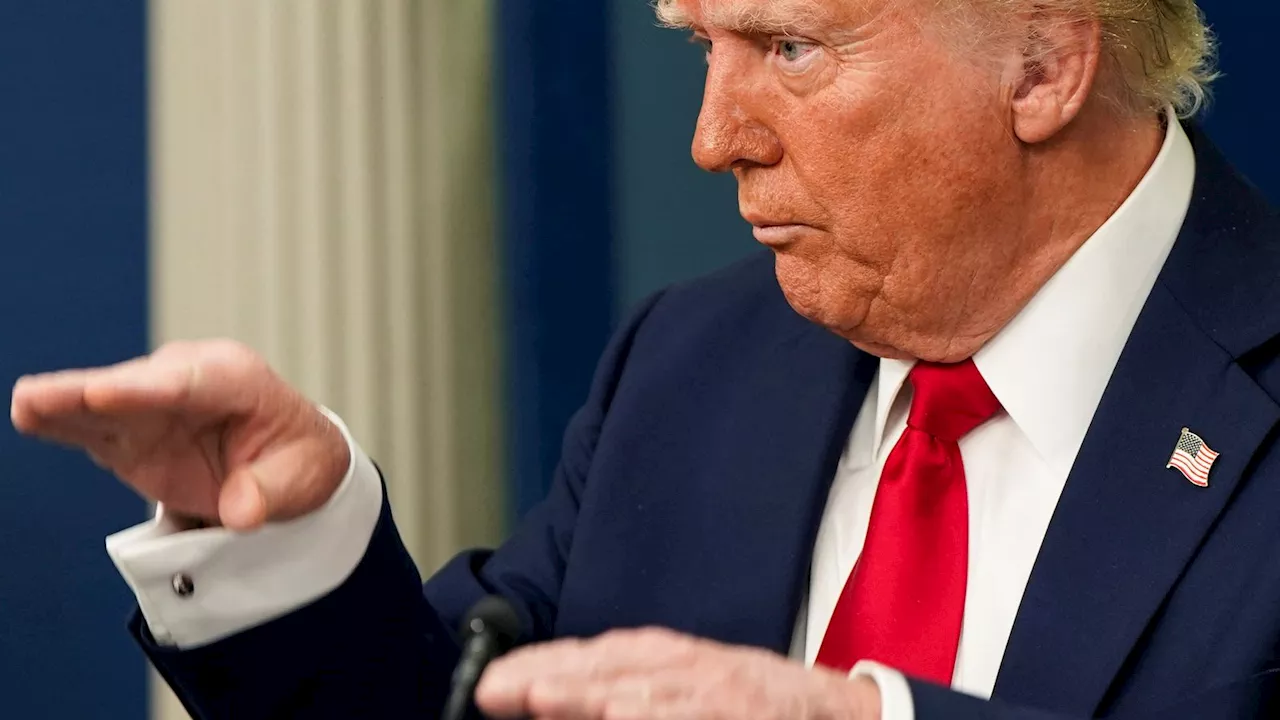 Trump's Mexican Tariffs: A Trade War or a Trade Shift?Donald Trump's renewed focus on tariffs against Mexico and Canada, despite a new trade deal with those countries, highlights the complexities of global trade and Trump's unique economic perspective. While tariffs on China were a defining part of his first term, the current shift in trade flows raises questions about the impact of these new tariffs and their potential to disrupt global supply chains.
Trump's Mexican Tariffs: A Trade War or a Trade Shift?Donald Trump's renewed focus on tariffs against Mexico and Canada, despite a new trade deal with those countries, highlights the complexities of global trade and Trump's unique economic perspective. While tariffs on China were a defining part of his first term, the current shift in trade flows raises questions about the impact of these new tariffs and their potential to disrupt global supply chains.
Read more »
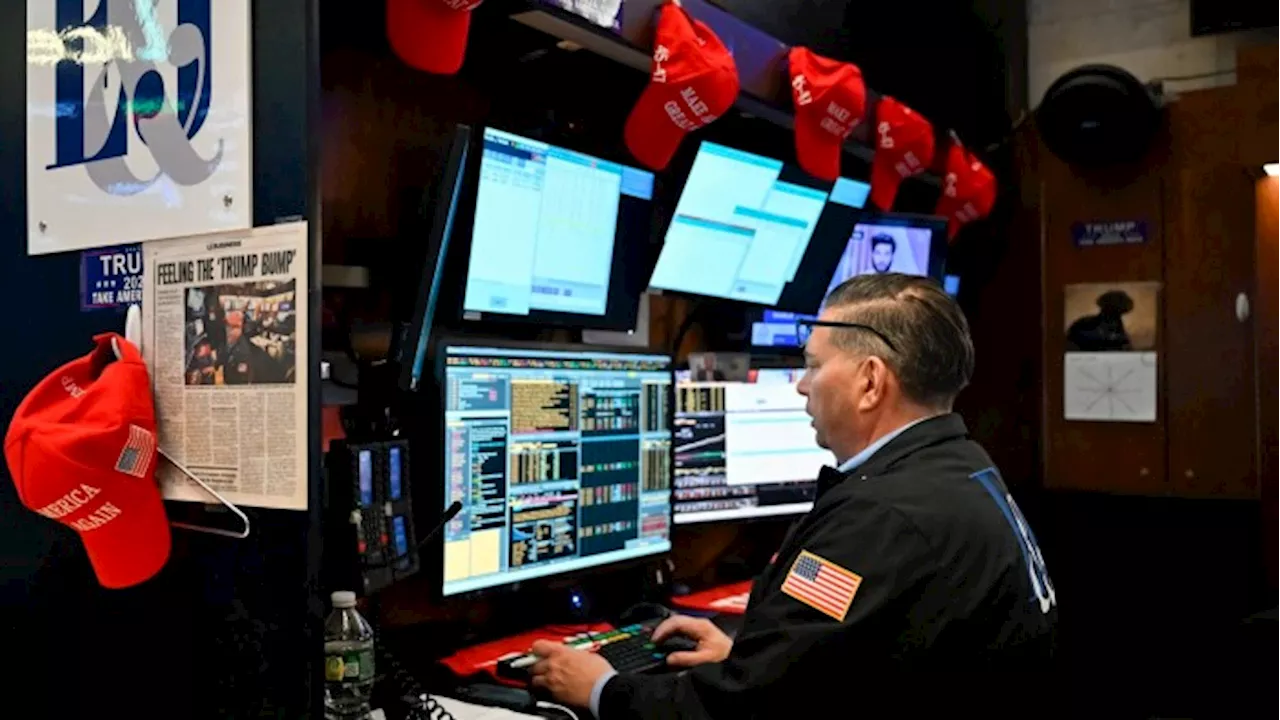 How to trade the trade warGlobal investors had time to prepare for Donald Trump’s tariffs but swift market reversals are keeping them on edge
How to trade the trade warGlobal investors had time to prepare for Donald Trump’s tariffs but swift market reversals are keeping them on edge
Read more »
